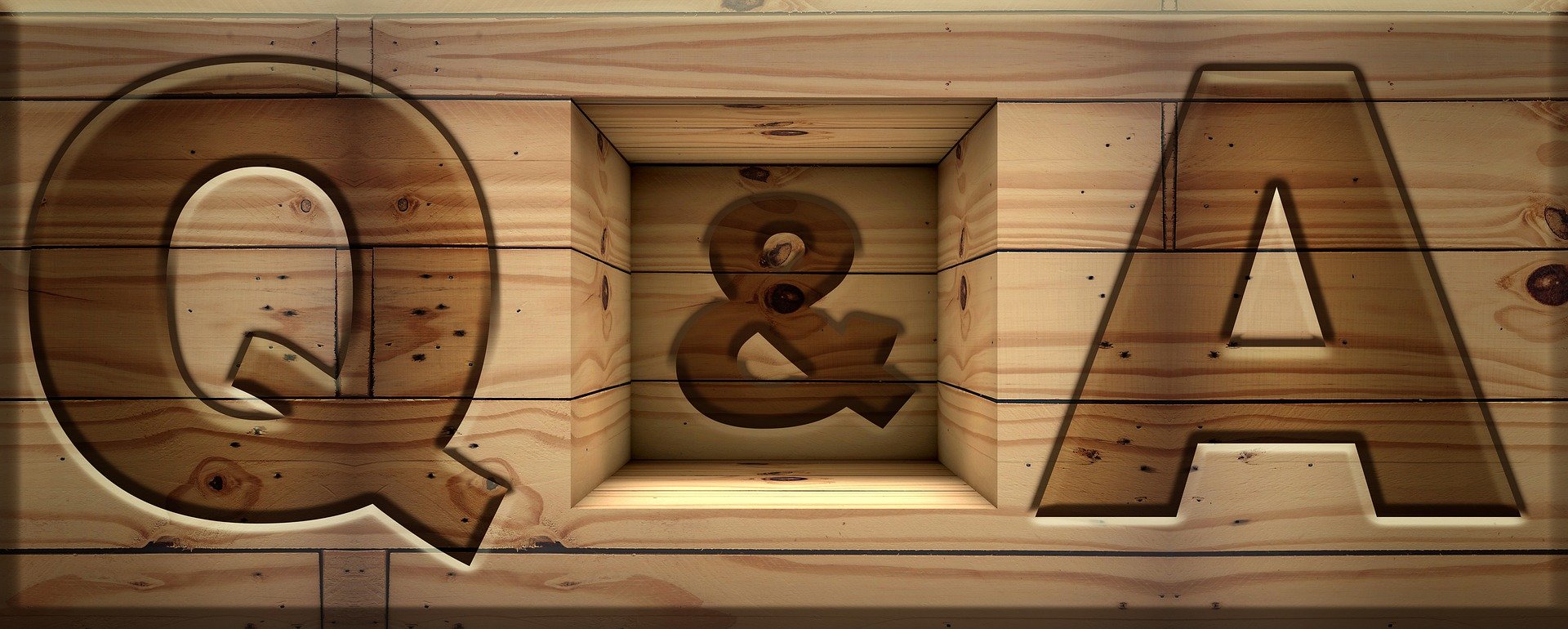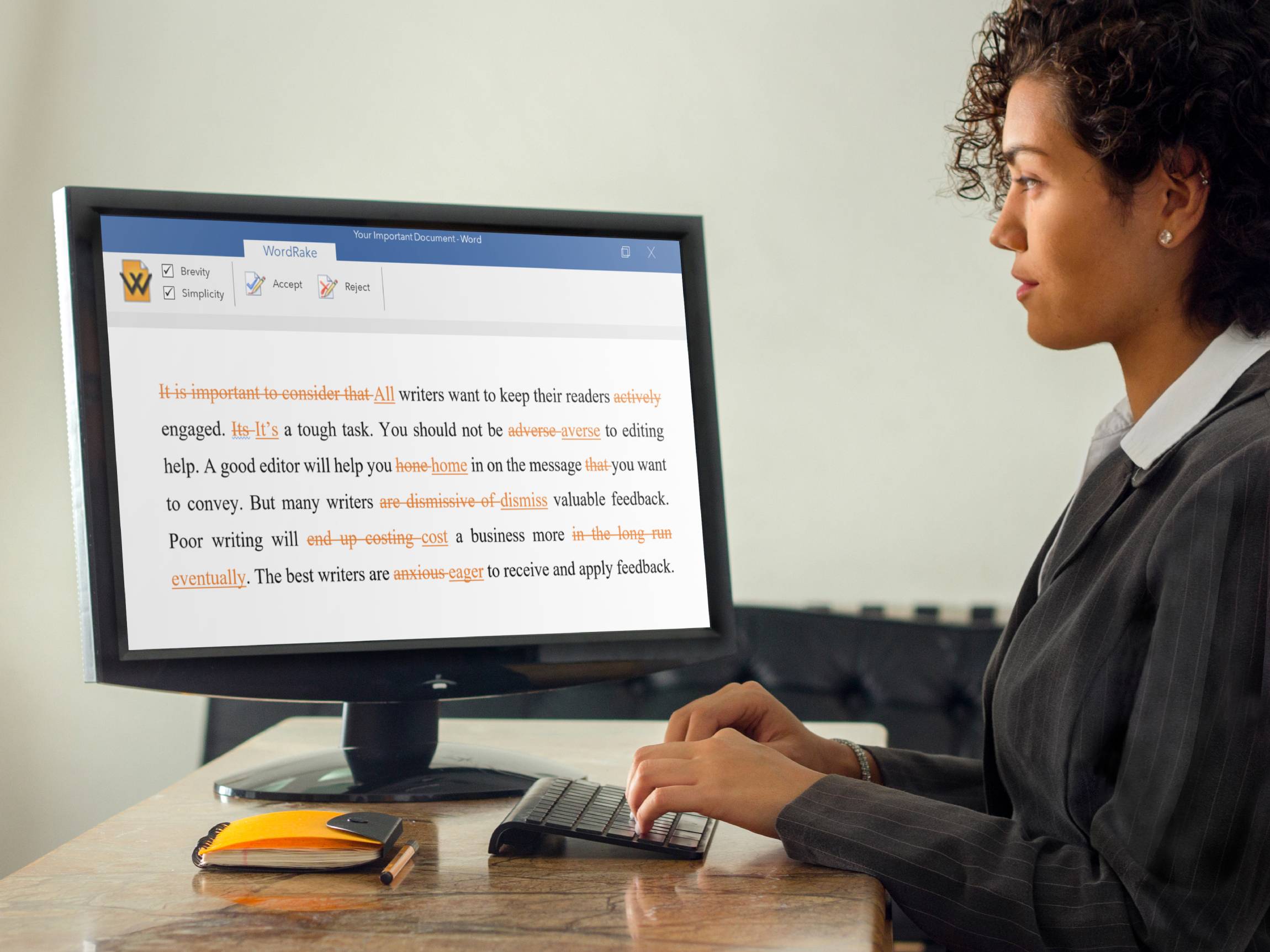What gave you the idea for WordRake?
Although I have a law degree, I’ve devoted my career to writing and teaching writing. I’ve taught to businesses, universities, government agencies, and writing/publishing conferences. But most of my teaching was in the thousand-plus writing programs I taught to lawyers around the country. While I was teaching to lawyers, I noticed patterns in their writing, and I wondered if I could use those patterns to help them. After years of studying the patterns, I realized that a finite set of “signs” showed up consistently in words and phrases that added no meaning or formed a dull expression. And I saw that this was not peculiar to lawyers: these signs appeared in all writing. I analyzed the writing of the best writers, from Pulitzer Prize-winning novelists, to writers in Esquire and Vanity Fair, to Supreme Court Justices. In about 2000, I wondered if I could work with software engineers to put these signs and patterns into algorithms. I was astounded to see how the signs and patterns so consistently hunted down useless words and dull phrases.
How is WordRake unique?
Underneath, WordRake applies a complex system of rules to the unruly English language to give users edits that appear simple and straightforward. Translating the editing patterns into machine language, then addressing the complexity of language with algorithms and refining the interface took years of intense development. We designed WordRake to feel intuitive, but the mechanisms behind it can’t be matched or replicated, and we have the patents to ensure that. Several editing programs exist, but none can edit the way WordRake can edit.
We now have 10 patents on editing, and I’m fairly certain that, except for Microsoft, no other editing software holds even one editing patent. We’re particularly proud of this because to receive a patent from the U.S. Patent & Trademark Office you must prove that your technology is novel and unique. Patents alone can distinguish one piece of software from the pack, and that’s what we’ve done with our WordRake patents. They mean that no one else has software like ours; the patents give us exclusive rights to offer the many edit types and features we pioneered. Also, we designed the WordRake software to emulate a live editor with a red pen, but one that works much faster and more reliably than a human. Click one button and see edits show up as they would in track changes, which you then just Accept or Reject. We wanted to streamline and turbocharge editing for all writers.
How does it feel to be a pioneer in proofreading and editing software?
It’s very rewarding to hear how much people see and appreciate the benefits from WordRake. When I first started talking about my idea for WordRake, I faced a lot of skepticism, but WordRake’s success proves people can really benefit from powerful editing software. No live editor could remember its thousands of algorithms or achieve its real-time results. So, yes, it’s satisfying to have created something so efficient and effective at improving writing—and to see that WordRake’s success as a Microsoft add-in has prompted the creation of so many other editing add-ins.
Why has WordRake pursued patents when other tech companies have not?
Applying for a patent is a rigorous process, a lot of work, and the Patent & Trademark Office awards a patent only for unique approaches. Investing the amount of time and money required to receive a patent is worthwhile only if your technology is so helpful to the public that someone might try to copy it. This is not “match and delete” the word very. Anyone can do that. Our editing methods are unlike any other editing software because we can analyze the virtually unlimited permutations of hundreds of thousands of English words and “see” those that have no meaning in context. This allows us to help people write more clearly and succinctly and to correct even some high-level word usage and grammatical errors in all types of writing. Microsoft already does a fine job with spelling and minor grammatical mistakes. From there, WordRake takes it much further, even with vocabularies as niche as those used by legal and medical professionals.
It was also important for me to document the work we put into WordRake. I collected and studied these signs throughout many years of teaching writing. I believed they formed a finite set, and the software development process confirmed this. To prepare for a patent required tens of thousands of hours, learning from my own teaching, and—combined with the three books I’ve written—it’s my life’s work. The patents validate and protect the results of these years of intense development. They show the world that our algorithms are unique to WordRake’s software and available solely through us.
What customer feedback (or success story) has been most inspiring for you?
Stories from newly graduated professionals are particularly inspiring. Everyone knows how stressful it is when you’re early in your career and want to impress everyone at your first internship or job. When people write to tell us that WordRake helped them tighten and brighten their documents and made them feel more confident, that tells me the software’s doing what we designed it to do—give everyone, even the best writers, more confidence before they show their writing to someone else.
Can anyone use WordRake?
WordRake has happy users in law, medicine, education, general business, finance, marketing, even technology. We designed it to catch wordiness in any profession. And WordRake revises inline right in track changes, so a user can easily accept or reject the suggestions. We purposely stripped away everything that might distract a professional. No readability indices. No score card. No gimmicks. Just pure editing. We wanted the editing to speak for itself.
Where would you like to see WordRake go next?
I would really like to see WordRake used as a writing tool in primary and secondary education. Instead of encouraging young people to write with a word minimum, we should be teaching them to write with a word maximum: “Write about the person who has most influenced your life and why. You have 200 words.” Before young people get into the habit of stuffing dull words and bloated phrases into their writing to meet some minimum, we could use WordRake to show them how to express themselves clearly and completely with fewer words. What would that do to help our education system? What would that do to help the business world these young people eventually enter?
Are there any common misconceptions about WordRake you’d like to clear up?
Although WordRake sometimes might seem as if it runs on Artificial Intelligence, it never communicates with the cloud or saves document information. Customers tell us that data security and confidentiality are top priorities for them, so our engineers ensure that WordRake meets those needs. That means you’ll never have to worry about seeing a headline or receiving an apologetic email from WordRake that your confidential documents have been exposed.
What is the one thing you’d like people to know about WordRake?
After you’ve run WordRake through your document and made changes, click the Rake button again! Once you’ve tightened your writing and moved some words around, the software often catches even more wordy phrases.




.png)




